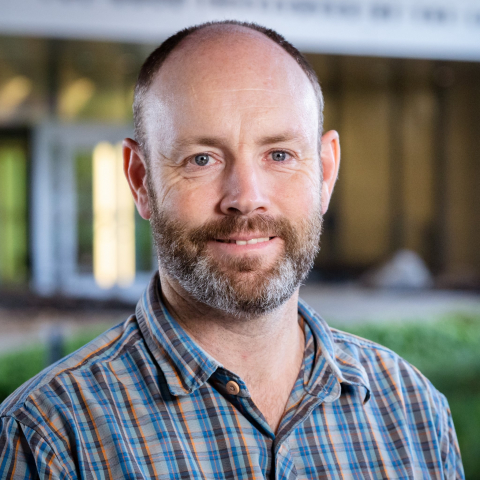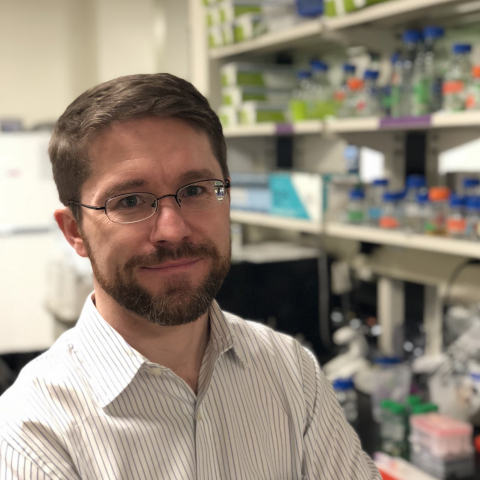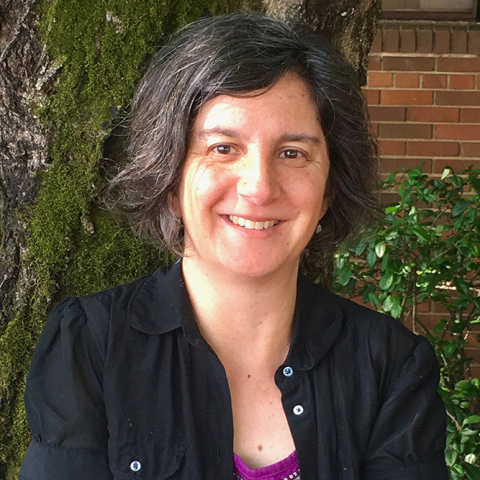15 People Results for the Tag: Quality Control
Michael Axtell
Distinguished Professor of Biology
Discovery and characterization of plant microRNAs and siRNAs. Functions of microRNAs and siRNAs in the evolution of plant development. Genomics and bioinformatics of microRNAs, siRNAs, and their targets
Santhosh Girirajan
Professor of Genomics; Professor of Anthropology; Department Head of Biochemistry and Molecular Biology
Understanding the genetic basis of neurodevelopmental disorders.
Douglas Cavener
Huck Distinguished Chair in Evolutionary Genetics; Professor of Biology; Former Dean, Eberly College of Science
Regulation of protein synthesis and control of translation initiation of mRNAs in higher eukaryotes and the evolution of tissue specific transcriptional regulation.
Shaun Mahony
Associate Professor of Biochemistry & Molecular Biology
We apply neural networks and other machine learning approaches to understand how transcription factors control cellular identity
Robab Katani
Assistant Research Professor of Global Health
Global health security, infectious diseases, and host-pathogen dynamics, as well as expertise in the enhancement of capabilities in the Low- and Middle-Income Countries, including Tanzania and India.
Center for Infectious Disease Dynamics
Donna Korzick
Director of Graduate Training Initiatives; Professor of Physiology and Kinesiology
My research is focused on aging, post-menopausal women, and cardiac ischemia reperfusion injury using animal models. We are particularly interested in the effects of estrogen deficiency on mitochondrial regulation of cell survival following myocardial infarction. Multiple levels of inquiry addressing mitochondrial quality control regulation and immune signaling is emphasized.
Justin Brown
Professor of Biomedical Engineering
Understanding the fundamental mechanisms by which biomaterial interfaces alter the proliferation, migration and differentiation of mesenchymal stem cells, and application of these principles in the intelligent design of biomaterial scaffolds that facilitate generation or regeneration of musculoskeletal tissues
Edward O’Brien
Professor of Chemistry
Developing and applying Physical Bioinformatic techniques to measure rates of translation transcriptome-wide and their molecular origins as relates to fundamental biology and disease.
Joshua Kellogg
Emphasis Area Representative, Molecular Toxicology; Assistant Professor of Veterinary and Biomedical Sciences
Development of new metabolomics tools for chemical and biological characterization of complex systems. Discovery of new natural products from plants and microorganisms with novel bioactivity against pathogenic fungi and neglected tropical diseases. Bioanalytical techniques to probe the mechanism of action and basic biology of these target organisms. Ethnobotany and indigenous knowledge surrounding plant-based medicine.
Yogasudha Veturi
Assistant Professor of Biobehavioral Health and of Statistics
Developing novel statistical and machine learning methods to better understand shared genetics between complex human diseases across the “phenome” and their connections with cognitive decline as well as genetic underpinnings of sex and ancestral differences in cognitive decline.











